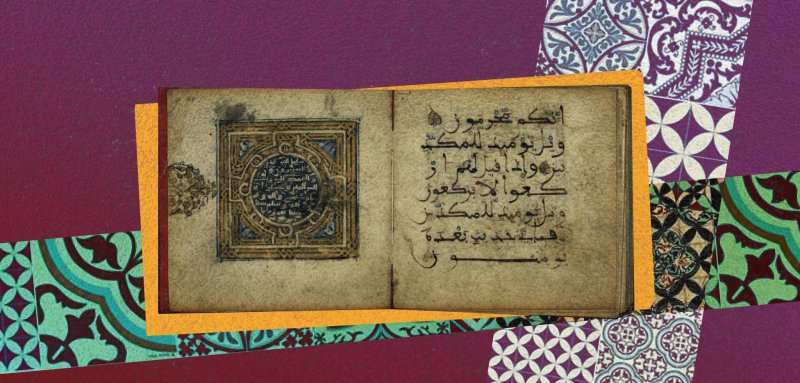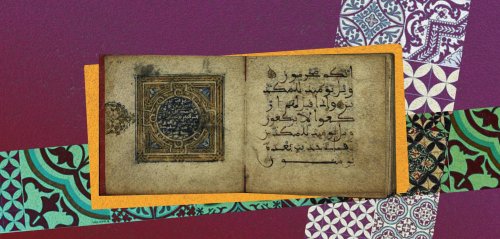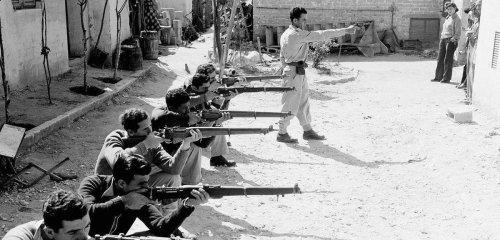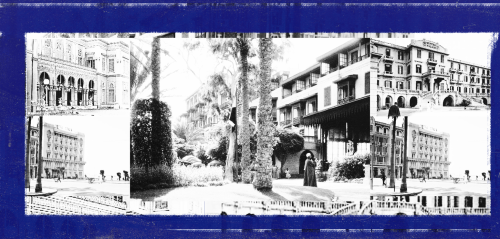With the closure of the chapter on the "struggle for identity" and the remnants of France's "colonial legacy" in Algeria, a brand new chapter has been opened to remind Algerians of the old-new wounds that are hard to forget, and contribute to the recovery of this legacy. After an announcement on a French auction website that an Algerian manuscript dating back to the colonial era, specifically to the beginning of the 1840s, was put up for sale in a public auction scheduled to take place on March 11 in the French city of Vannes with an opening price ranging between 300 to 400 euros, there was a great uproar among the Algerian diaspora in France, because this was seen as a clear extension of France's theft of Algerian cultural heritage.
Those opposing the auction sale demanded its suspension and the manuscript's return to Algeria. The website quickly responded to these pressures, announcing through the auction director Jack-Philippe Ruellan that on account of the Algerians who refused the sale of the manuscript and expressed their anger and dissatisfaction, the item was withdrawn. It added that it would ensure that this work is delivered to the consulate in the city of Nantes so that it ends up in a museum in Algeria.
So what is the content of this manuscript that angered Algerians this month? Who is its owner? What is its historical significance for Algeria? How was it stolen and then smuggled to Paris in 1842? And what were the most prominent reactions rejecting the sale?
What's Old is New Again: A 17th century Algerian manuscript for sale in France reopens colonial wounds, calling into question Algeria's role in protecting its cultural heritage
Not the first time
The Algerian Djalia Dz newspaper mentioned in a tweet on its Twitter page, "Thanks to the concerted efforts of Algerians in France, an Islamic manuscript belonging to Algerian Emir Abdelkader was withdrawn from auction." It is worth mentioning that such an incident is not new in the context of the open cultural-political conflict between Algeria and France.
On the 31st of March 2017, the Algerian Ministry of Culture announced the recovery of 600 rare and ancient documents dating back to the Ottoman era in the country. These documents, which include rare manuscripts, maps, and heritage books, were purchased at an auction in the French city of Toulouse by the ministry after being put up for sale by the Marambat Malafosse auction house. The Ministry confirmed in a statement that this was a significant "step with a sovereign dimension within the efforts made by the highest authorities in the country to retrieve and reclaim the country's archives," and therefore would "enable researchers to conduct historical studies based on reliable documents, thereby enhancing collective memory," according to a report by the Al Jazeera channel on April 4, 2017.
According to Al Jazeera, the Algerian authorities say that tens of thousands of maps and historical documents dating back to the Ottoman era in Algeria between 1518 and 1830, were smuggled by the French authorities after they invaded the country in 1830.
Why hasn't the Algerian government intervened to protect its historical manuscripts until now?
The nature of the manuscript
The document, which is a manuscript on Islamic jurisprudence dealing with "the fundamentals of religion", belongs to al-Hadi Abu Srour bin Abdulrahman al-Abadi al-Shafi'i from Cairo and dates back to August 1659. It was copied by Mohammad bin Mohammad bin Qasim al-Ghabrini al-Hadi. The document consists of 37 lines, most of which are written in brown ink with notes in red ink, along with other notes in French explaining how it was seized and taken from the allies of Emir Abdelkader, or one of his disciples.
The French auction website, in an advertisement that was later removed, had initially announced the discovery of a manuscript that was in poor condition, and how it arrived in France. The website had explained that the manuscript was seized by French colonial forces led by General Theodule Changarnier during one of its raids in a mountainous region, where it was found with a tribe that was herding sheep in the area. The tribe was affiliated with Emir Abdelkader El Djazairi, “the number one enemy of France at that time”. This took place in June 1842, before a lieutenant called Blanerie carried the manuscript to France as a gift to his brother in Paris, in August of the same year.
General Changarnier explained in a report to Marshal Bugeaud in June 1842 that he carried out several raids to strike the rebellious tribes against the French in different regions during that year, including what was done in the region of Algiers and Titteri, in addition to another major invasion that was accompanied by a battle with the Bani Wragh tribe in the highlands of the Alonchris mountains. During this invasion, he was able to kill fifty people and capture three thousand members of the tribe, including men and women.
"No one has the right to sell our history, let alone if the seller is an occupying invader!"
"Nationalists.. Where are you?"
Activists, twitter users, and bloggers on social media launched a campaign of anger and condemnation opposing the sale, considering the planned auction as "public theft" of Algerian heritage, and that no one has the right to sell or trade with this heritage. They also expressed their anger at the Algerian authorities' delay and silence in the face of this kind of provocation, demanding the necessity of returning the manuscript and other stolen historical heritage to the country, because its natural place is in the museums of Algeria. One activist tweeted, "Nationalists, patriots, and those who speak of the honor of the martyrs, where are you? And, where is the Ministry of Mujahideen?"
In turn, Algerian politician Djamel Guessoum wrote on his Facebook page, launching a campaign calling for the purchase and acquisition of the rare manuscript, considering the issue a "matter of dignity". He stated, "Our dear citizens and friends, I have informed you in various ways of the purchase of an Algerian manuscript dating back to 1859, which will be displayed for public auction on Saturday, March 11th at 2 pm." Guessoum then says, "In this context and in cooperation with the citizens, I initiate this process, which I hope will be the prelude to a long-term commitment to recover our historical possessions. I invite you to participate and share this message, which must be, above all, a matter of dignity."
Defending their actions
Under the title "Withdrawing the Algerian jurisprudential manuscript from public auction in France", the Algerian newspaper "El Khabar" published an article on March 11th, attempting to clarify the issue of withdrawing the auction. El Khabar spoke to journalist Mohamed Zaoui, who explained to the newspaper that the credit for stopping the auction goes to former journalist and history enthusiast Foudil Ourbah, who was the first to raise the issue in an attempt to urge the Algerian authorities to intervene and stop the process.
Zaoui added, "I contacted the auctioneer to obtain permission to film the sale process at the auction, but he initially rejected the idea before agreeing after I persisted." The man then called Zaoui back to inform him of the withdrawal of the manuscript from the auction and the cancellation of the sale, "following the insults and threats that were directed at the expert in charge of presenting the manuscript due to the presence of her phone number on the website page."
The auctioneer assured him that it was "not an original copy" and that he "does not engage in politics. If an official French or Algerian institution asked me to withdraw it, I would do so."
Raseef22 is a not for profit entity. Our focus is on quality journalism. Every contribution to the NasRaseef membership goes directly towards journalism production. We stand independent, not accepting corporate sponsorships, sponsored content or political funding.
Support our mission to keep Raseef22 available to all readers by clicking here!
Interested in writing with us? Check our pitch process here!









